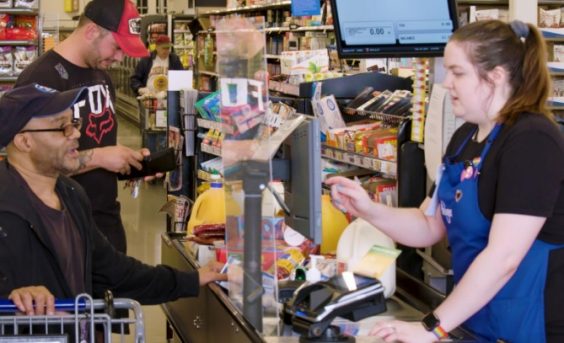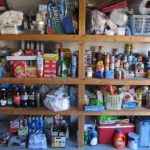
Over the past couple of weeks, many grocery stores jumped into action to protect their customers and employees from the coronavirus. One grocer proposed special shopping hours for seniors, now nearly everyone offers them. One installed plexiglass cashier shields, now many of them have.
But in case some stores haven’t changed with the times – local governments are going to make sure they do.
Several state and local officials have passed laws over the past week, mandating many of the changes that some grocers have already made. Others have enacted some new regulations that go even further. And, in some cases, governments are refusing to mandate changes that some people are clamoring for.
New England states seem to be leading the way in legislating changes that many stores had already implemented on their own early in the pandemic. Massachusetts last week ordered grocery stores in the state to set aside an hour for seniors to shop, to mark “social distancing lines” at least six feet from checkout counters, and to regularly clean and sanitize frequently-used touchpoints throughout the store – all measures that many stores have already taken.
Maine went a bit further, limiting customers in larger stores to only 100 at a time. And Rhode Island is mandating that stores allow no more than 20% of what would otherwise be their maximum capacity. Stores will have to keep count of the precise number of shoppers inside, subject to surprise spot checks by state police.
It may all seem a little stringent, at a time when most grocers are already doing as much as they can to keep everyone safe. Even so, there are some who are complaining that their local government isn’t doing enough.
A California union representing grocery workers is lobbying the state to mandate more safety requirements, like shorter store hours, limits on the number of shoppers allowed at one time, and compulsory checkout shields for cashiers. But so far, those measures are still being implemented only on a voluntary basis. And the mayor of Chicago is refusing a local union’s request to ease restrictions on the use of plastic bags and eliminate the use of reusable bags. The union is concerned that reusable bags could carry the virus, while the mayor remains unconvinced – though the state’s governor has since advised grocery stores throughout Illinois to prohibit shoppers from using reusable bags.
Then there are the more creative ideas. One community in Oklahoma has come up with a clever, albeit difficult-to-enforce, way to ensure that shoppers can maintain some social distance in stores. The city of Norman is asking residents to begin “odd-even” shopping – those whose addresses are even-numbered can grocery shop on even-numbered dates, while those with odd-numbered addresses shop on odd-numbered dates. Presumably this will be on the honor system, lest grocery workers be forced to check shoppers’ IDs at the door to scrutinize their home addresses.
Finally, one state is offering a unique solution that’s providing some much-needed relief to overworked grocery employees. Over the weekend, thousands of members of the Arizona National Guard began working to transport goods to store stockrooms, in order to help employees at dozens of grocery stores throughout the state to keep the shelves stocked. “Arizona grocery stores are facing unprecedented demand, and this assistance will help ensure the continuation of food supply,” the governor announced upon activating the Guard earlier this month.
So the next time you have to venture out to the grocery store, if you find there are new restrictions in place, it may not be because your store is mandating them. It could be because – for as long as this emergency lasts, at least – it’s the law.
Image source: Kroger
















That odd even thing doesn’t really work. If people normally shop once a week on the same day, it will be odd one week and even the next.
Seems if people would just go back to shopping as they usually did (that is whatever pattern they used previously, as much as possible) it wouldn’t be as much of an issue – it’s only those who have changed things that messed up a system that has worked well.
There would still have to be a few out of pattern (those who shopped in the off hours that stores are now closed or early morning non-seniors) but those would be small in comparison to what has been seen lately with so many lined up.
Also, for any issues of those shopping being too close, be sure to see who is the cause before saying something to them. If you are stopped looking at an item and someone else walks up to you, make sure that they are the one who gets talked to – same as it isn’t your fault on the road when you leave space and someone else pulls right in front of you.